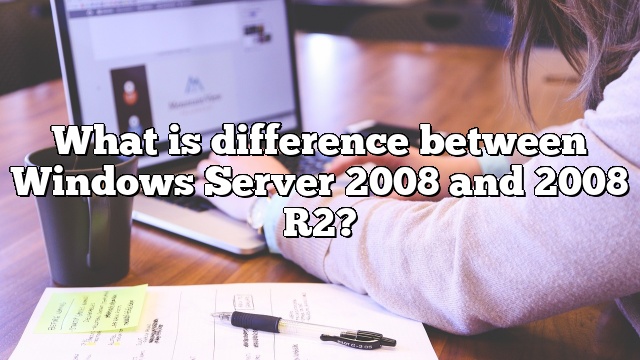What is the difference between Windows Server 2008 2008 ST and 2008 R2?
Server 2008 uses the same kernel as Vista and is available for both 32-bit and 64-bit platforms. Server R2 2008 has the same kernel as Windows 7 x64 and is mostly only available for 64-bit configurations. THE WINDOWS UNIVERSE WITHOUT CHAOS!
What is the difference between Windows Server 2008 and 2008 SP and 2008 R2?
Server 2008 SP2 is similar to Vista SP2. It is available in basic 32-bit and 64-bit versions. Server 2008 R2 is the same bits as Windows 7 x64. Only works in 64 bit versions.
What is the difference between Window Server 2008 2008 SP and 2008 R2?
Server 2008 SP2 has the same bits as Vista SP2. It is available using 32-bit and 64-bit playbacks. Server 2008 R2 is the real part of Windows x64 7. It only exists in version 64.
What is the difference between SQL Server 2008 and SQL Server 2008 R2?
SQL 2008 R2 is definitely the latest version of SQL Server. Consider it this year’s SQL server. It has a different growth rate and a SQL Server R2 2008 database cannot be directly restored to SQL Server 2008. Also, all service packs for 2008 and R2 are different and are not interchangeable or upgraded together.
What is difference between Windows Server 2008 and 2008 R2?
Server 2008 SP2 is the same as SP2 for Vista. It is only available in 32-bit and 64-bit versions. Server R2 2008 has the same bits as Windows 7 x64. This only happens in the 64-bit version.
What is the difference between Windows Server 2008 and 2008 R2?
Windows Server 2008 R2 may be a version of Windows Server, so it is version 6.1 of these operating systems; brings a lot of new features as it is finally a new feature version. There are also differences between each GUI level, as WS2008R2 uses all of our new GUIs introduced in Windows 7 (new taskbar, etc.).

Ermias is a tech writer with a passion for helping people solve Windows problems. He loves to write and share his knowledge with others in the hope that they can benefit from it. He’s been writing about technology and software since he was in college, and has been an avid Microsoft fan ever since he first used Windows 95.
